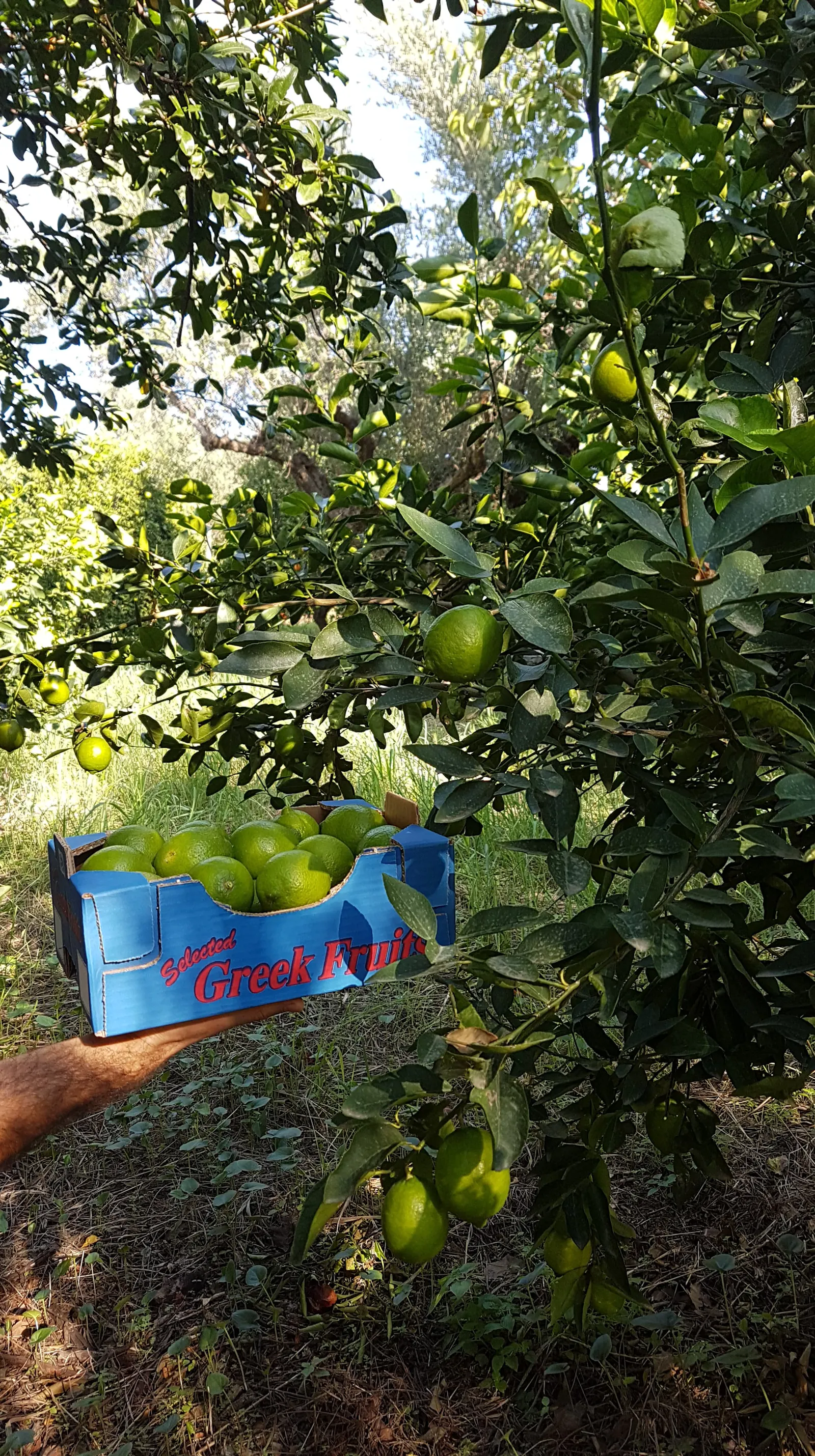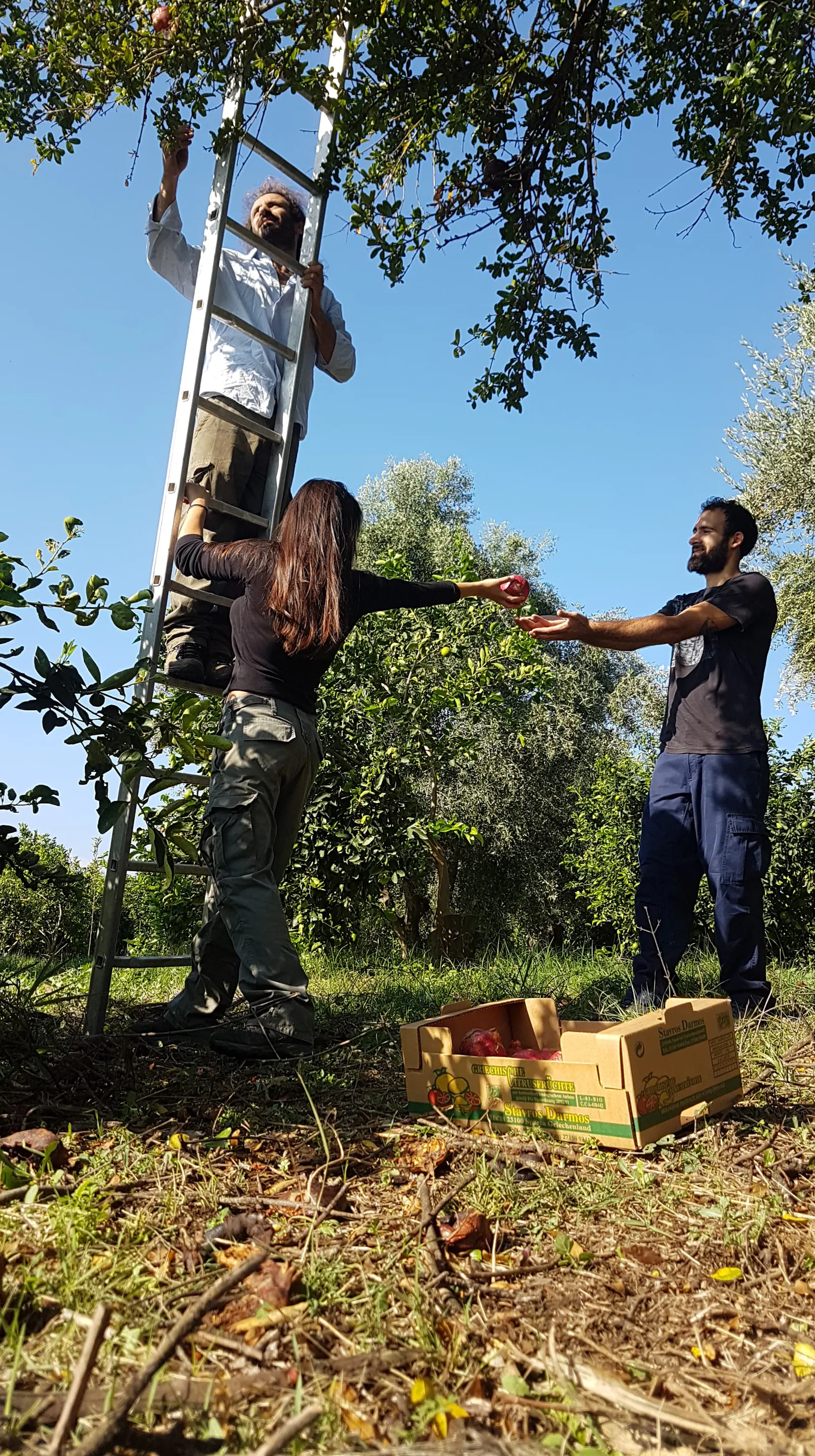The Perspectives Series Vol 3: Sheila Darmos
Co-founder of the non-profit organisation The Southern Lights.
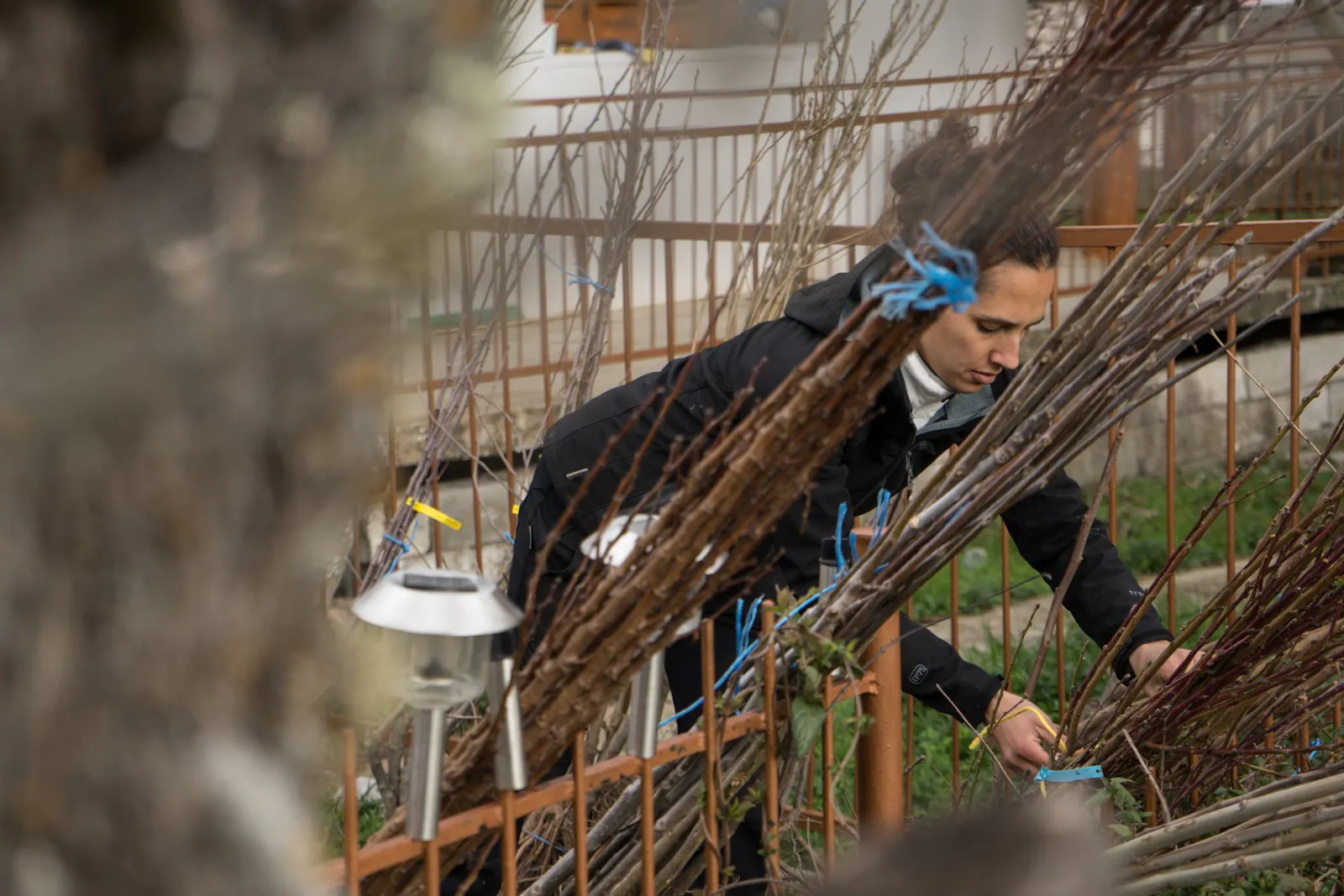
Originally published on August 27, 2020.
In your own words please introduce yourself and your work.
My name is Sheila Darmos, and I am the co-founder of The Southern Lights (Opens in a new window) project. With our work we aim to regenerate habita(n)ts, by spreading knowled (Opens in a new window)ge about regenerative practices, and by empowering people to regenerate theirs as well. I believe we all can be of crucial importance in our environment, in regards to nature but also to the people that surround us, but we have to be brave to do things differently.
I am lucky to have been raised not to fear anything, especially not to be afraid of what people might think. Having grown up with a father, that was (Opens in a new window)a pioneer in organic farming in Greece, that started organic farming even before there was a certification agency, th (Opens in a new window)at was fighting against neighbouring villages that are spraying by airplane, I grew up with a very brave example.
Also I am lucky because I grew up without beliefs on gender being imposed on me. I don't perceive any limits to what I can do that could have to do w (Opens in a new window)ith me being a women. So much that it is hard for me to identify with the gender problems. Being raised as a girl was not the case for me. I was raised as a human.
I observe this issue all around me in the rural agricultural area in Greece. My studies in Sociology in Germany give me a great understanding of these (Opens in a new window) social processes and I feel with the educational center that we are running here we can help in erasing the perceived limits of young people arousing from their gender and empowering them to create a different world. Also it is linking them to the broader global movement, which has many positive effects.
On the other side our efforts in converting more agricultural land into regenerative farming, introducing agroforestry as a farming practice that mimi (Opens in a new window)cs the forest and regenerates soil fast, are supported my family business Silver leaf, that I inherited from my father. He founded this organic production and exporting business, to offer an economic incentive for organic farming practices, to the local farmers, that he supported in their conversion to organic farming practices. Nowadays we can support farmers, that convert to regenerative farming practices applying agroforestry systems in their land. And it is this business that made it possible for The Southern LIghts to start its non-profit activities in the first place by supporting it financially. Nowadays though we are working on making The Southern Lights financially independent and sustainable by looking for various ways to fund our work.
If you take both organisations together they have a very holistic approach, the Southern Lights is working more on the social aspects with spreading k (Opens in a new window)nowledge and empowering young people while Silver leaf is connecting us with the prevailing outside world, building a bridge to many people and spheres of society. Through our products people can get to know a whole different world that is being build up by many non-profit organisations, social businesses and change makers all over the world, following principles and ethics of Permaculture.
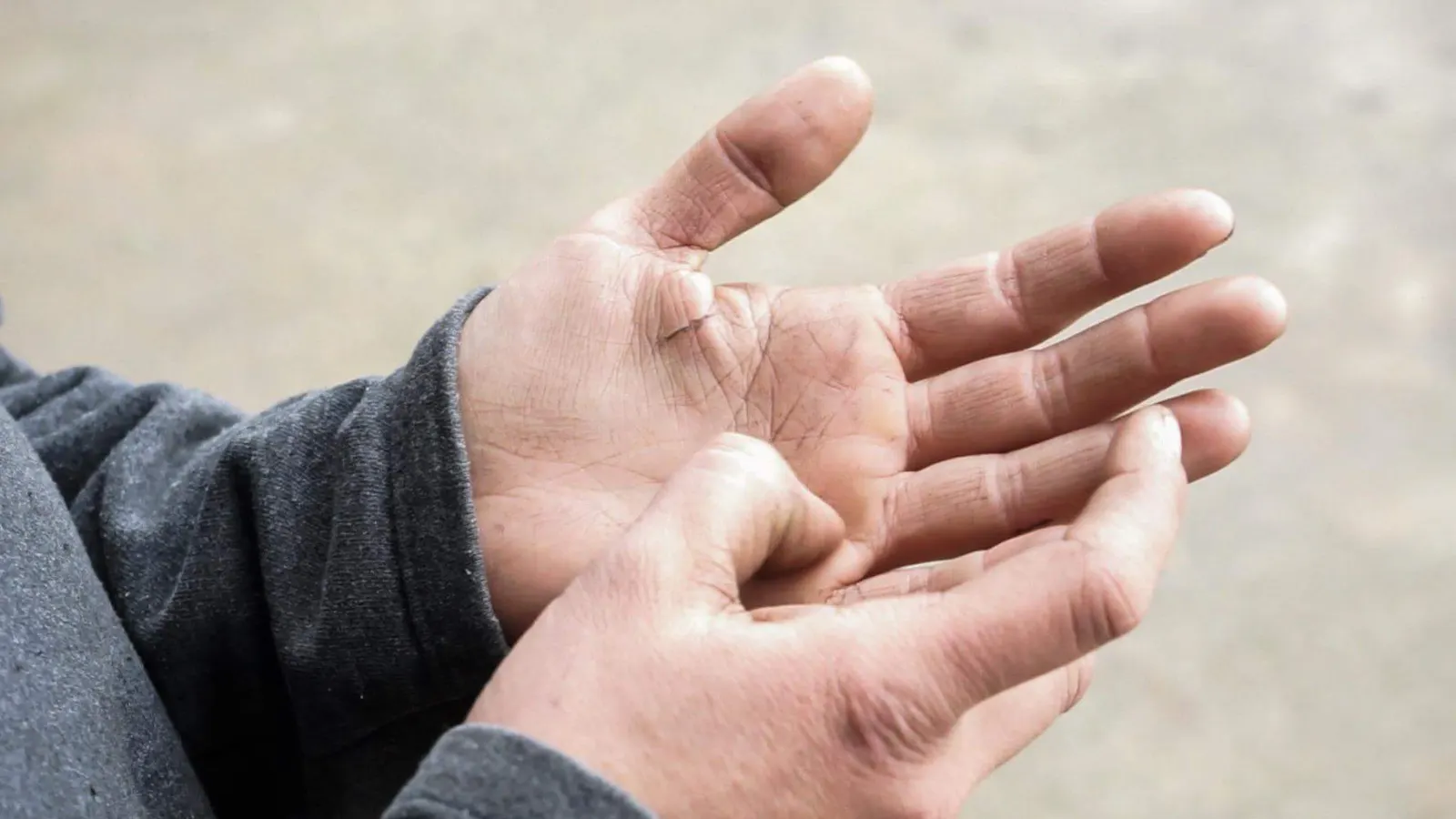
What does “sustainable food” and "a resilient food culture" mean to you?
For me food production has to be in harmony with nature, that's why we us (Opens in a new window)e agroforestry as our farming model. From observation we know that nature cre (Opens in a new window)ates a forest. It is it's natural tendency. If you let it. Farming in a different way means to constantly work against nature rather than with it. That is not only unsustainable but it is also not logic. It would be like using a car, the engine not according to how it is build. If you use another type of fuel, then what the “nature” of the engine is build to use, everyone knows that the machine will not function for long and will be destroyed soon. Then you have to put more effort into maintaining it, and probably soon you will need more money to buy a new one.
The same happens in conventional agriculture. The way nature works is completely ignored, rather we isolate various factors like the nutrient demand o (Opens in a new window)f the plant and try to provide those, but ignoring that a plant usually grows in combination with other plants, that there is a collaboration of fungi in the soil with microorganisms and that all these is working together in harmony and balance in ways that we still and probably never will completely understand. In a complex forest system like this that is changing constantly, a forest is maturing, we have to rather utilize what the system gives us rather then demanding specific things.
But for this the consumption behaviour has to change. Rather then going to the supermarket asking for strawberries, we should buy from farmers who we (Opens in a new window)know and trust what their “forest” like system is providing in any given time. Then the farmer doesn´t need to put pressure on his system to produce tomatoes to early in the year, the farmer will be released from this pressure that the consumer and the supermarkets are putting on him, and he will live a more healthy live also. This requieres a whole shift in consumers perception of food production.
A resilient food culture for me means to be adaptive to sudden changes in the supply of our food. This can be achieved through various factors. On the (Opens in a new window) one hand we are more resilient if we know people in our local area that produce food. We have to have a relationship with the people that grow our food. To know their problems or challenges, so we can work together on reshaping our reality to combat these challenges. If we only start speaking with each other I realized, we can solve any problems, and many problems then we realize are not problems at all. Further we are more resilient in sourcing our food if we know more about food. If we would only know what nature provides that is edible we knew we never have to fear the lack of food. Even in cities, literally everywhere you look in places that are a bit abandoned by human intervention, you found a huge biodiversity of plants, of which at least 50% is edible and if you research a bit about them you would find that all of these have amazing healing properties. I think it would be a good advise to reconsider what food means for us. Why we consider cauliflower food, but not stinging nettle?
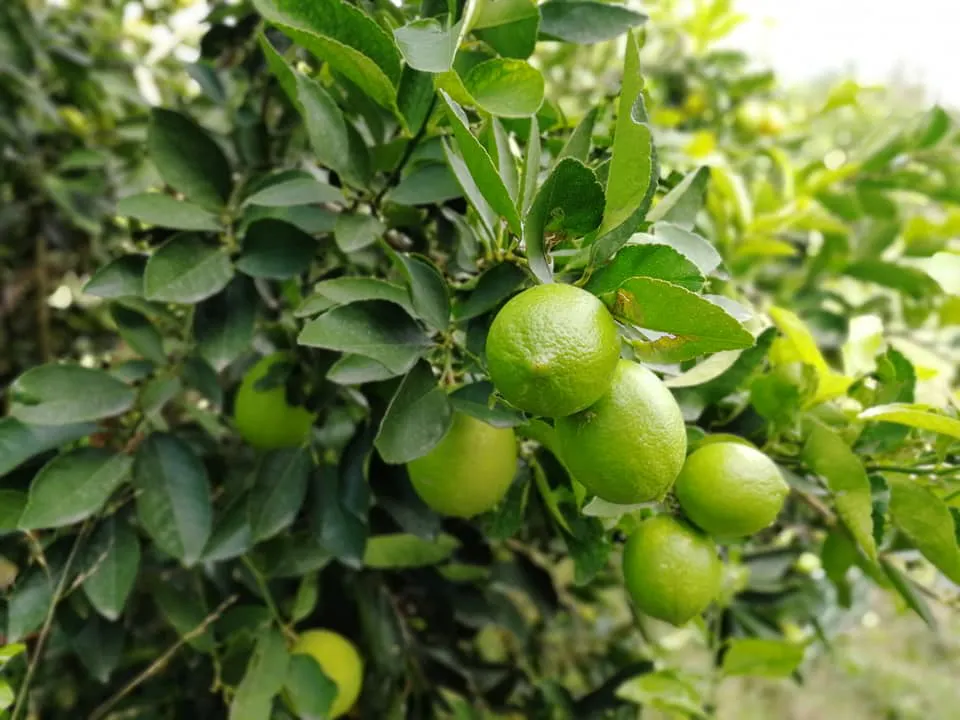
What are your visions/dreams for a more sustainable, responsible and resilient food culture?
Ideally we will connect with the people that grow our (Opens in a new window) food and support them. For me the CSA (Community supported agriculture) is a very good model. Th (Opens in a new window)e food that we eat should be seasonal and local. That would mean that we learn also what grows in which season and what grows in our area which would connect consumers more with their natural surrounding. Ideally we will stop buying food packaged in plastic, shipped from far away. And ideally we will speak with the people that grow our food. We will know each other and develop healthy relationships of mutual trust and support. But this I don't only have this vision for our food culture but for all spheres of society. I hope we take back responsibility for our needs and become inventive and responsible in the way we cover these needs.
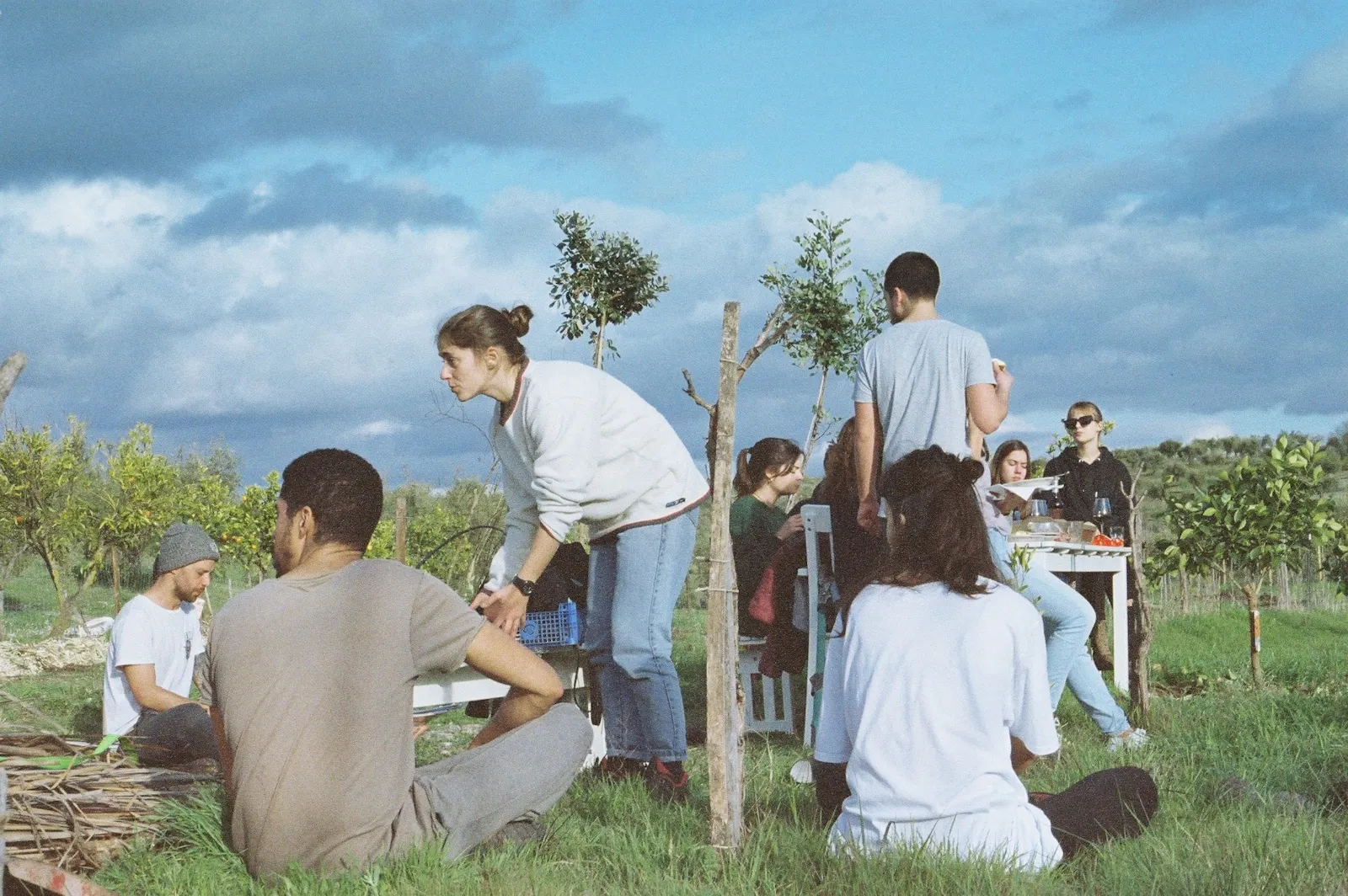
How is your work connected to this vision?
Our work focuses a lot on informing people. We want to show to people how easy it is to grow their own (Opens in a new window)food, but also what the reality of food product (Opens in a new window)ion means, so that they can make responsible choices. In our farm we grow a huge biodiversity and literally everything that grows here is edible. People coming and visiting start to perceive their natural surrounding very different, reconsidering the term “weeds” and “food”, which is a good start. Further I think the principles of Permaculture are a good guide on the way to get to a more resilient food culture, might it be for consumers or for producers as well, which is why we share them and implement them in our farm, project and organisation but also share them in workshops and gatherings that we do all over Greece, while planting food forests in various organisations, schools, kindergardens and spaces that are open to the public. All these are entry points into a different world. And we try to create as many as possible all over Greece and beyond.
In your eyes, where lies the biggest potential for us as consuming humans to impact change and help shape a more sustainable food culture? (Opens in a new window)
To be h (Opens in a new window)onest, I rarely make hierarchical comparisons of elements, rather I believe there is a dynamic interconnectedness between various elements, so (Opens in a new window) it is hard to state where lies the strongest potential for a more sustainable food culture.
But from my observation in my work between so many different groups of society, from farmers, to consumers, from highly formal educated people to rath (Opens in a new window)er simple hands-on craftsmen, from beaurocratists to theorists, from educators to mechanics, we all have the possibility to reshape our reality and our food culture with our own skills. But each ones efforts achieve the highest potential if we speak to each other, regardless our social “class”, regardless our differences. If we learn to listen and develop a culture of collaboration, rather then competition. If we start speaking to people we never get in touch with. If we break all boundaries of society with which we grew up. We will discover that we all feel a need for a change and I even discovered that people could understand my vision of food forests, from whom I had never expected it. This opened my eyes and showed me that if we just speak to each other we can make a different reality happen very fast.
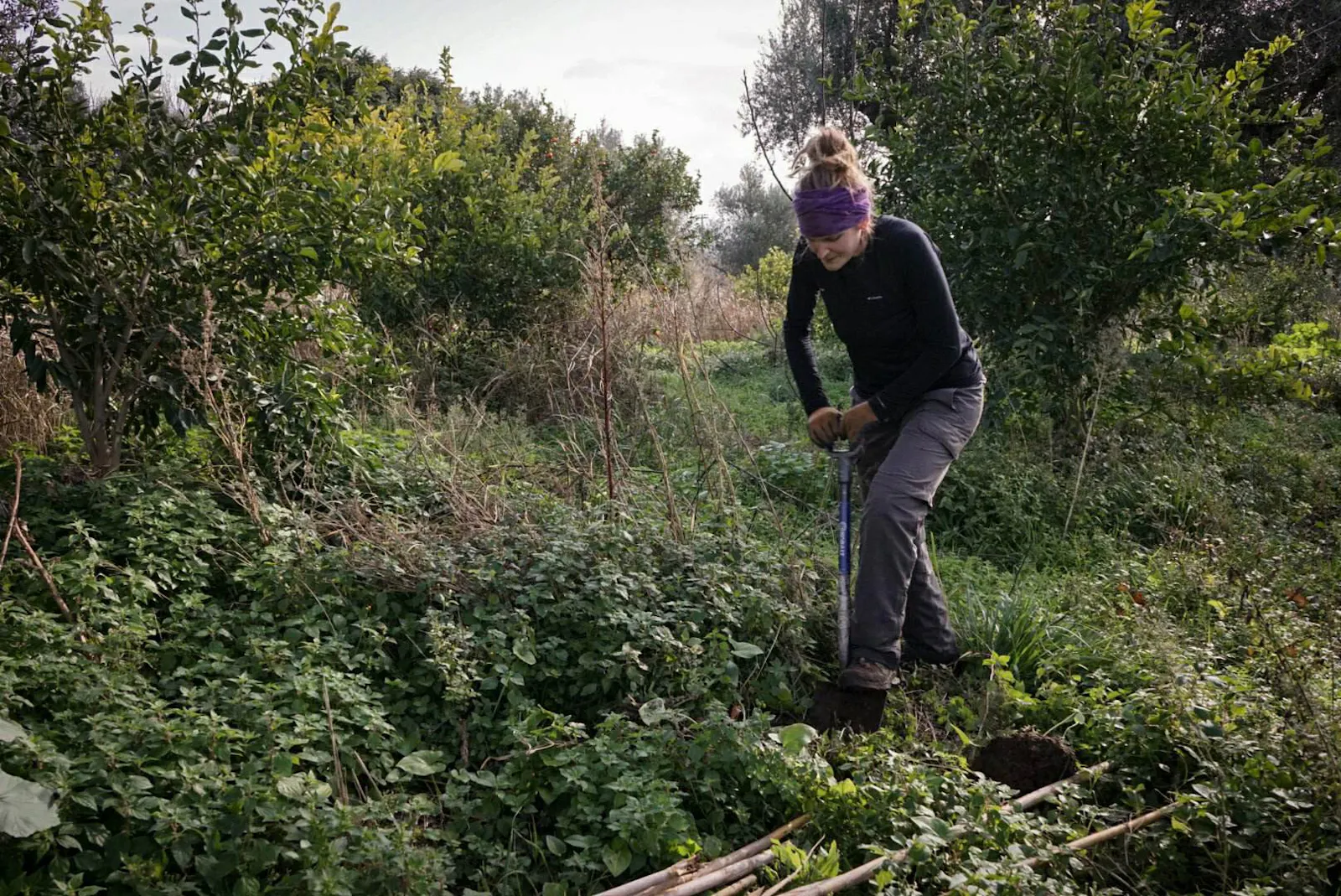
Where can people learn more about your work and engage with it?
The best way to engage with us is by planting a food forest with us. Besides that (Opens in a new window)we try to put a lot of information about our events and actions on o (Opens in a new window)ur website and social media, and to spread the word on events. But honestly we don't feel very comfortable talking about doing something, but rather we want to do it simply. So while we are talking about planting a food forest, why not planting one and then we can talk about it.
We are quite active in supporting young projects in implementing a food forest, like for example we did in Portugal in the project of Critical Concret (Opens in a new window)e in an urban environment on small scale or in Alentejo in a productive olive grove. Joining these events or gatherings that we organise throughout the year is a good way to engage.
Also people can support our work financially through our Patreon channel, or by simply writing about our work, like you do. Thanks a lot for that. (Opens in a new window)
Where else and what would you encourage people to go and learn?
I would encourage people to learn everything that triggers their interest. (Opens in a new window) Every day we should learn something. I am learning constantly new things, f (Opens in a new window)rom knitting to website programming, desigining to farming, there is no rule on what someone should learn. Learning about Permaculture though changed my life in the way that it gave me hope, to see there is a whole global movement out there that is on a similar path then I was, without knowing it had a name. It gave me strength to continue my journey.
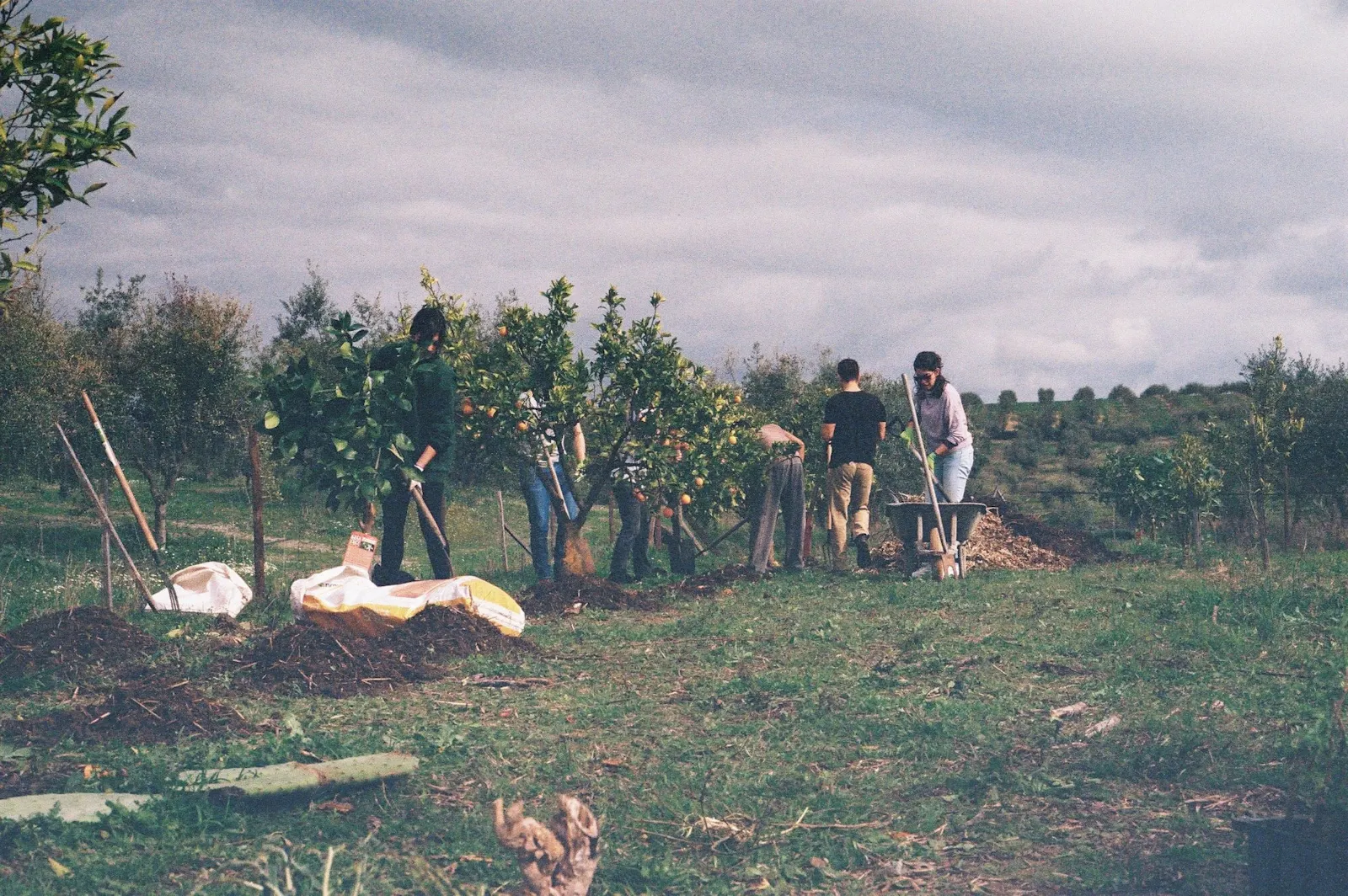
Anything else you'd like to share?
My message for the readers is not to wait for anyone for anything, to take things into ones own hands, with one (Opens in a new window)s community. To not fear anything, to b (Opens in a new window)e brave and strong and to look deep inside us but also to open our eyes to our surrounding, our fellows, our neighbours, our world and fix our reality. We have one life for now, lets do things that matter and do them with care. Let's connect with each other, because it's time to unite.
